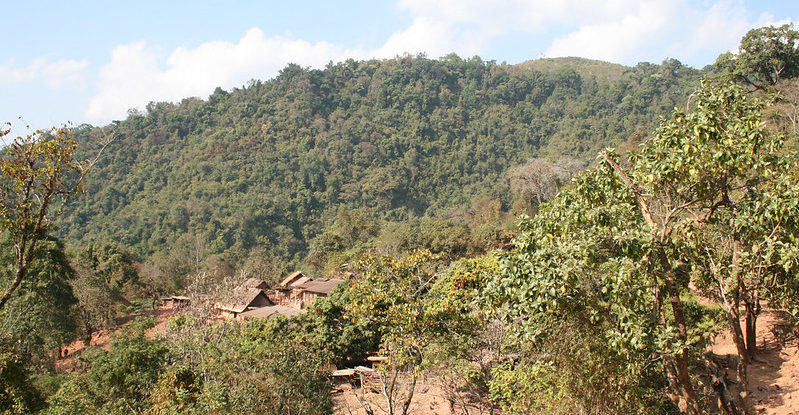
In Jakarta last week, delegates celebrated more than a decade of partnership at a knowledge-sharing event where lessons learned and results were revealed to mark the conclusion of the ASEAN Swiss Partnership on Social Forestry and Climate Change (ASFCC) funded by the Swiss Agency for Development and Cooperation.
Participants explored the potential for enhancing collaborative action on social forestry, climate change and related sustainable development issues. The Center for International Forestry Research (CIFOR) launched an informational brief titled “Laos’ Nationally Determined Contribution (NDC): Progress, opportunities, and challenges in the forestry sector.”
The case of Laos is particularly significant as it was the first country in Asia to declare its Nationally Determined Contributions in 2015 and currently is developing a second NDC for submission to the U.N. Framework Convention on Climate Change at the end of 2020.
NDCs are a key part of the strategy detailed in the 2015 U.N. Paris Agreement to prevent post-industrial average temperatures from rising to 1.5 degrees Celsius or higher. Each country is required to provide data on greenhouse gas emissions and reductions targets it aims to meet post-2020.
An early adopter in 2015, Laos’ efforts have met with mixed results, says the recently published brief jointly produced by the National University of Laos, the country’s Ministry of Natural Resources and Environment and CIFOR.
“Major challenges impeding the country’s efforts to achieve its forestry sector NDC targets are persistent and similar to those identified 10 years ago,” the report states, citing shortcomings that include failure to fully implement policies aimed at addressing causes of deforestation and forest degradation, poor coordination between sectors, lack of reliable data and credible methodologies for measuring outcomes.
While successes have been achieved and targets met in some sectors, in others they have not been met. For example, rural electrification with a target of 90 percent of the rural population with access to electricity has been exceeded, but the target of 70 percent forest cover has not been achieved.
The forestry sector will continue to lag behind in the NDCs unless rigorous impact assessments of existing policies and initiatives on forest protection, development outcomes and other components are evaluated to determine how best to achieve national environmental, social and economic development goals.
ASFCC partner organizations CIFOR, World Agroforestry, Non-timber Forests Exchange Program, RECOFTC and the Southeast Asian Regional Center for Graduate Study and Research in Agriculture, have worked to promote regional cooperation on multifaceted, landscape-based concepts of ecosystem management to combat climate change.
At the two-day event, ASFCC delegates did not only review the transformative impact of a partnership which was conceived initially in 2007 and officially launched in 2011, but they explored potential opportunities for future collaboration.
Hosted by the ASEAN Working Group on Social Forestry, the ASEAN secretariat, Ministry of Environment and Forestry Indonesia and the Embassy of Switzerland in Indonesia, it was held at the ASEAN Secretariat Compound.
We want you to share Forests News content, which is licensed under Creative Commons Attribution-NonCommercial-ShareAlike 4.0 International (CC BY-NC-SA 4.0). This means you are free to redistribute our material for non-commercial purposes. All we ask is that you give Forests News appropriate credit and link to the original Forests News content, indicate if changes were made, and distribute your contributions under the same Creative Commons license. You must notify Forests News if you repost, reprint or reuse our materials by contacting forestsnews@cifor-icraf.org.